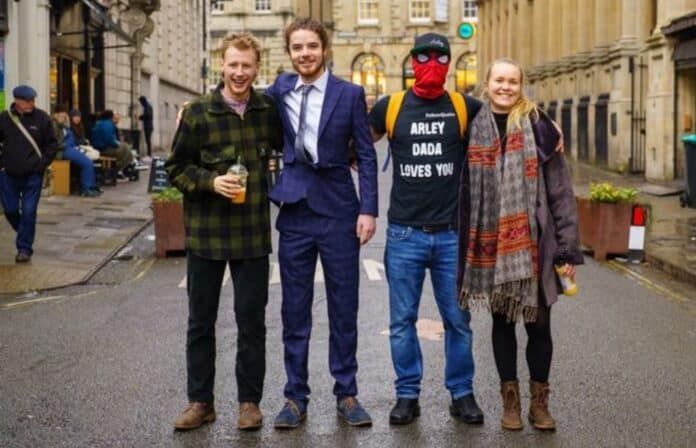Remember the uproar when the symbols of racist history were removed or attacked?
Remember as the far right and historical revisionists insisted that they remain?
Remember that we have a legal system that mostly responds to evidence over opinion?
Remember the day the Colston 4 were found NOT GUILTY!
Four people, Rhian Graham, Milo Ponsford, Sage Willoughby and Jake Skuse have today been found not guilty over “an act of public dissent during Bristol protest” In a 10-day trial at Bristol crown court, the four defendants did not contest their actions on 7 June 2020 but sought to argue they were justified, because the statue was so offensive.
Giving evidence in their own defence, each described being motivated out of sincere antiracist conviction, frustration that previous attempts to persuade the council to remove the statue had failed, and a belief that the statue was so offensive it constituted an indecent display or a hate crime.
The Colston statue was approved by the council in 1895 and it had not given permission to anyone to alter, damage or remove the statue on 7 June, the trial heard.
But Liam Walker QC, representing Willoughby, said: “Each of these defendants were on the right side of history, and I submit, they were also on the right side of the law.
“Colston’s deeds may be historical but the continued veneration of him in this city was not. The continued veneration of him in a vibrant multicultural city was an act of abuse.”
Willoughby, who climbed the statue, told the court he targeted Colston “because he was a racist and a slave trader who murdered thousands and enslaved even more”
“I thought that a statue that celebrates a figure such as Colston was disgraceful, and offensive to the people of Bristol,” Ponsford told jurors.
Graham, who also brought rope, said she acted out of “allyship and solidarity” with people of colour.
Skuse admitted helping roll Colston to Pero’s bridge, named for an enslaved man who lived in Bristol, where it was thrown into the water, “sentencing [Colston] to death”. “I knew I was in the right, I knew everyone wanted it down,” he said. “I knew Bristol wanted it, everyone wanted the same thing.”
If you like our content please keep us going for as little as £2 a month https://dorseteye.com/donate/







